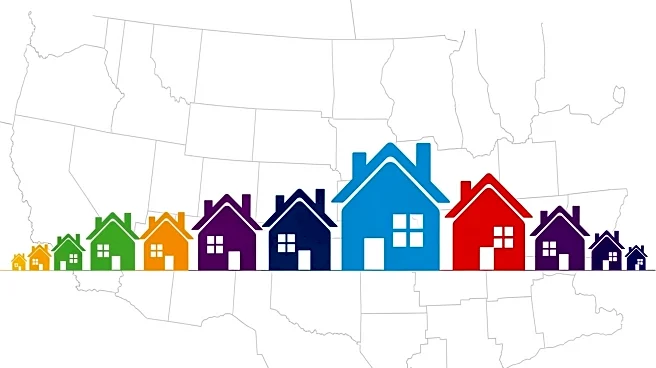What's Happening?
Recent data from Realtor.com reveals significant disparities in property tax burdens across the United States, with some states offering much lower tax rates than others. West Virginia, Alabama, and Arkansas
are identified as having the lowest property taxes, with median amounts owed by homeowners being $728, $804, and $871 respectively. These states also have lower median home prices compared to the national average. In contrast, states in the Northeast, such as New Jersey and New Hampshire, have some of the highest property taxes, correlating with their higher property values. The report highlights that property tax growth varies widely, with some states experiencing tax increases that outpace home price growth, while others see a decrease in tax burdens despite rising home values.
Why It's Important?
The variation in property tax rates across states has significant implications for homeowners and the housing market. Lower property taxes in certain states can make homeownership more affordable, potentially attracting new residents and stimulating local economies. Conversely, high property taxes in states like New Jersey and New Hampshire can add to the financial burden on homeowners, impacting affordability and potentially deterring new buyers. The ongoing housing affordability crisis has prompted discussions in several states about reducing or eliminating property taxes to provide relief to homeowners. However, such measures could lead to funding challenges for public services, as property taxes are a major revenue source for local governments.
What's Next?
Some states, particularly those led by Republican governors, are exploring the possibility of reducing or abolishing property taxes. Florida Governor Ron DeSantis has expressed support for eliminating the state's property tax, and Ohio is considering a grassroots movement to put the measure to voters. However, experts caution that eliminating property taxes could lead to increased financial burdens in other areas or result in underfunded public services. As states weigh these options, the debate over property tax reform is likely to continue, with potential implications for state budgets and public service funding.











